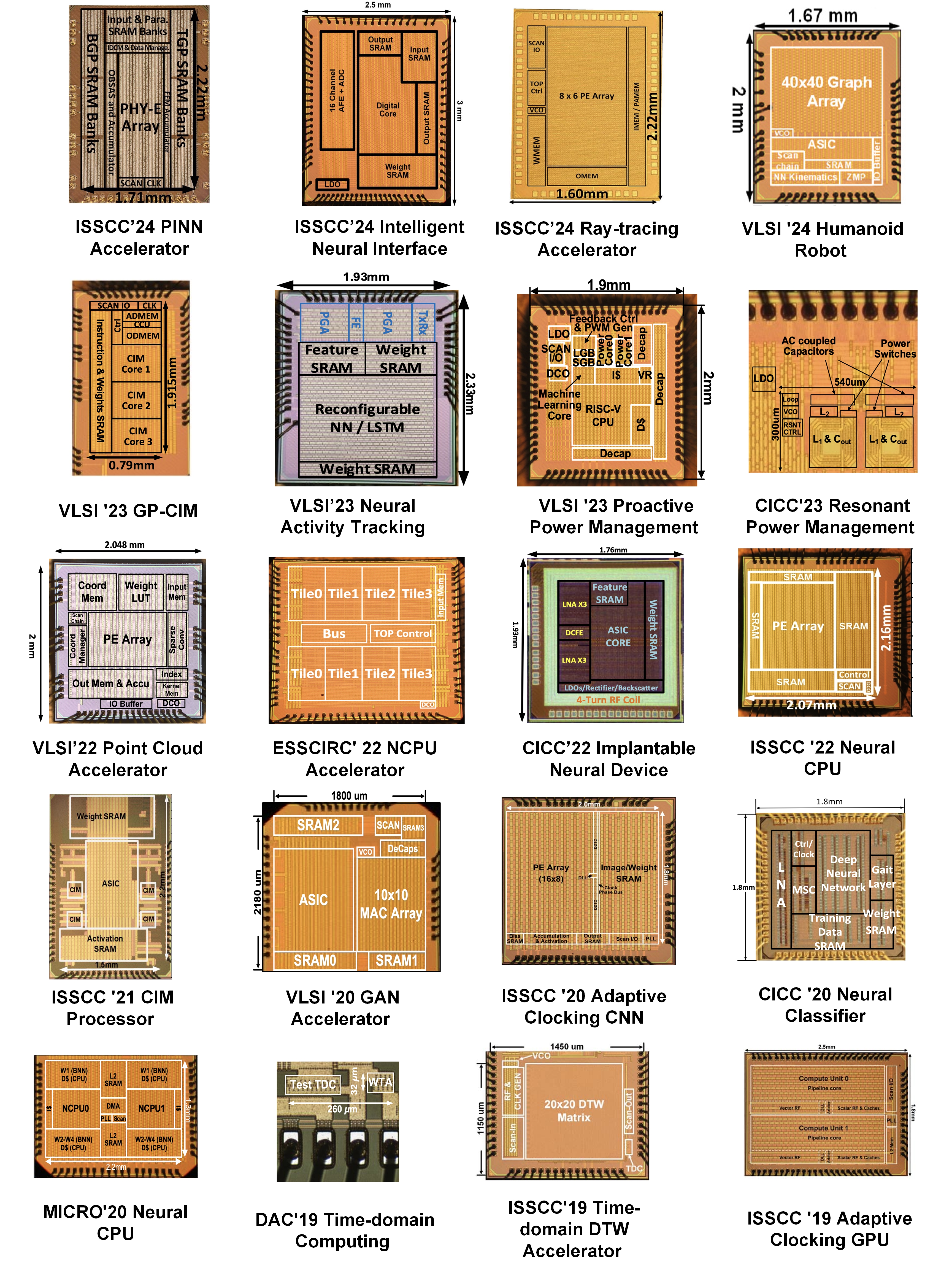Research Overview: Explore the boundary and beyond
Our research generally covers the area of energy efficient computing with exploratory approaches.
Mission: With several years' industry experience in both large and startup companies, my research combines the "realistic" practice with "futuristic" developments. As conventional design methodology has reached several bottlenecks, we dedicate our efforts to explore the "unknown territories" at the boundary and/or beyond the existing technologies.
Approach: As AI, 5G, IoT technologies observe explosive growth, we are at an exciting time where many new opportunites in computing hardware are appearing. Compared with a decade ago when CMOS technology scaling provides us sufficient steam for improvement, we are at a critical point where revolutionary circuit, architecture, and system solutions are urgently needed to meet the ever-increasing demands on computing power. To achieve this goal, we explore novel solutions such as time-based mixed-signal circuits techniques or neural network based general purpose computer architecture to support many challenging computing jobs, e.g. machine learning algorithms, advanced AI tasks, etc. At system level, we leverage our "AI powered" tiny chip to provide full solution to many challenging new applicaitons such as intelligent human machine interface for VR/AR/Smart glasses. Below summarizes a few topics that we are currently working on.
Topic1: Analog Mixed-signal Computing and Its Applications for Robotics Topic2: Intelligent Neural Interface for Human Machine Interface Topic3: Novel Computing Architecture for Edge AI Devices Topic4: Proactive Power Management with Real-time Machine LearningTopic 1: Time-domain Mixed-signal Computing and Applications in Robotics
As conventional digital computing based on Boolean logic is reaching its energy bottleneck, we are looking for new ways of processing information. In this thrust, we are exploring a "time-domain computing" where time is used as an information carrier. In essence, it is a mixed-signal approach where high efficiency is achieved combining operation at different dimensions, including both time and voltage domains. To certain extents, this is similar as spiking based neuromorphic operations, but at more deliberate levels. We demonstrate such techniques on emerging machine learning applications.
Demonstration of Humanoid Robot with Time-domain Computing in VLSI'24
Demonstration Video of Quadruped Robot Control with Bio-inspired Mixed-siginal Computing in GLSVLSI'25
(1) Basic Concept of Mixed-signal Time-domain Computing (ISSCC'19, DAC'19, VLSI'20)
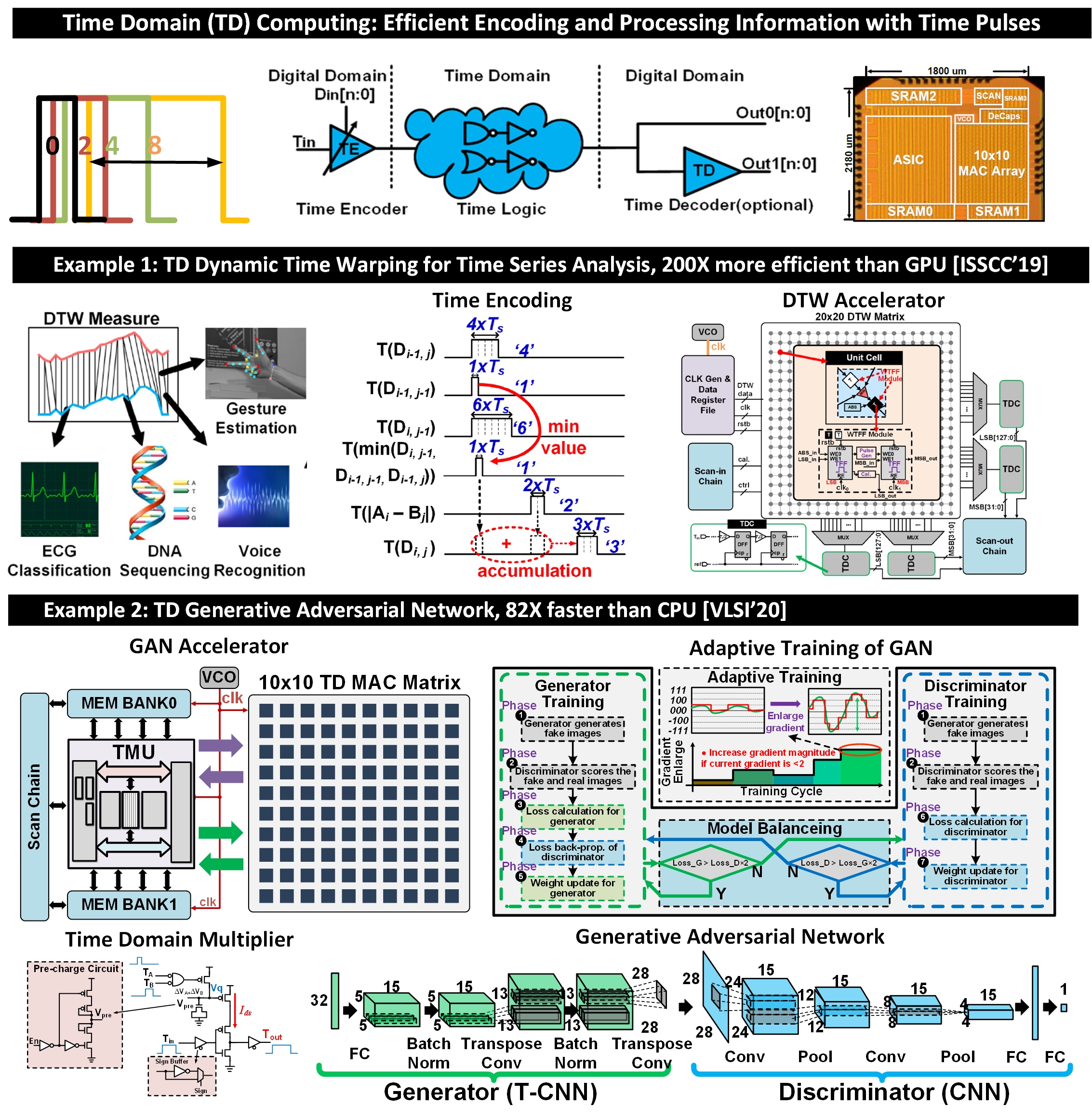
(2) Mixed-signal Computing for Compute-in-Memory for AI Acceleration (ISSCC'21, JSSC'24)
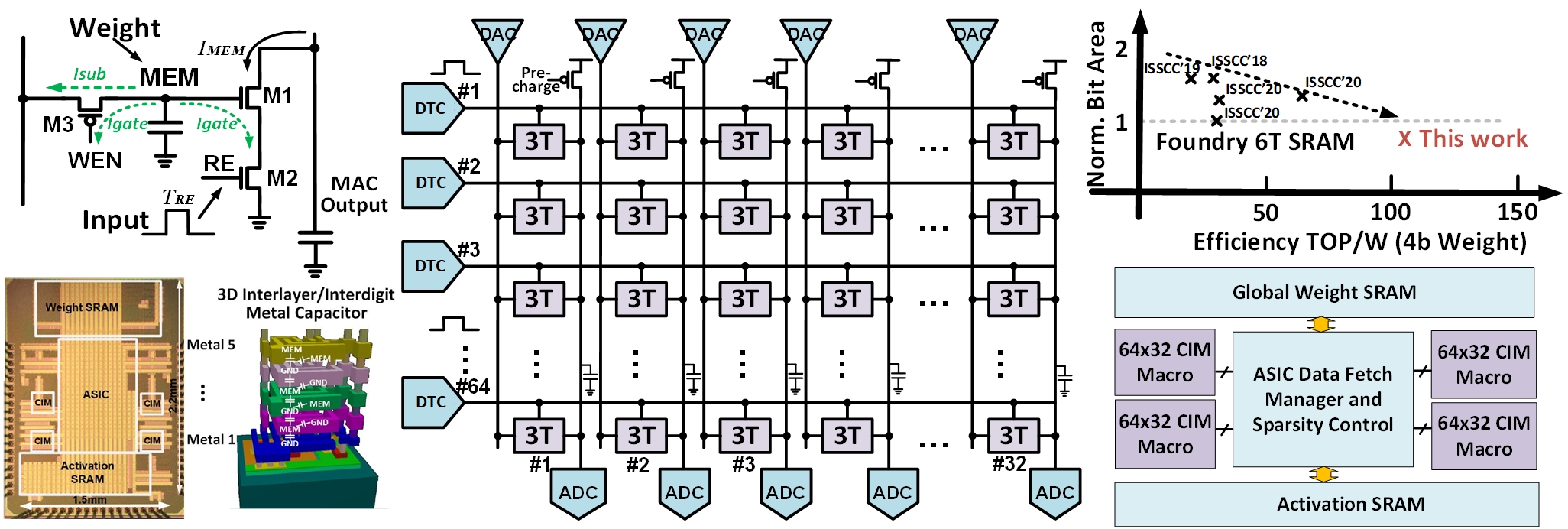
(3) Mixed-signal Computing for Robotics (VLSI'24, GLSVLSI'25)
Example1: Time-domain Circuit for 3D Footstep Planning of Humanoid Robot (VLSI'24)
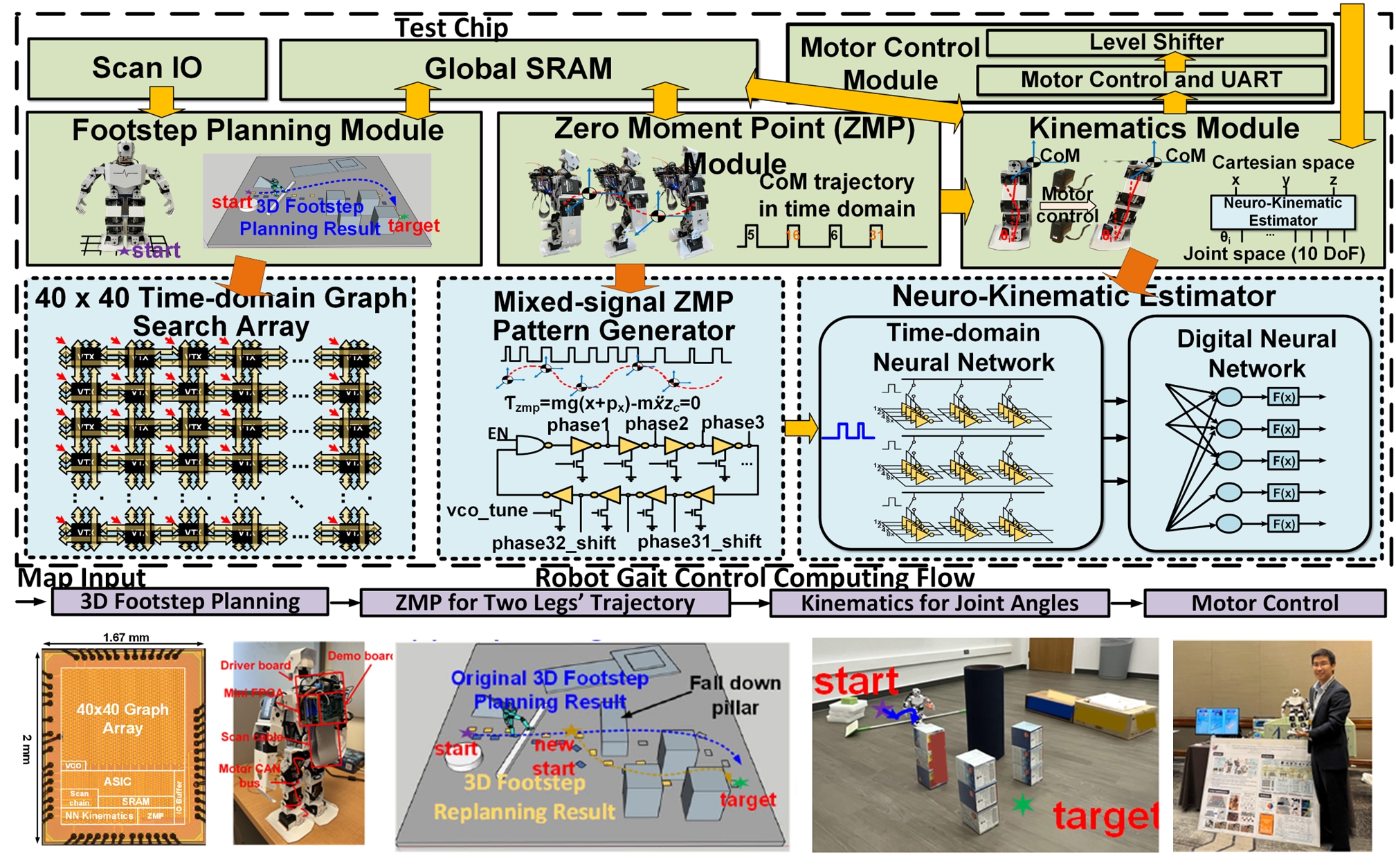
Example2: Bio-inspired Mixed-signal Central Pattern Generator based Quadruped Robot (GLSVLSI'25)
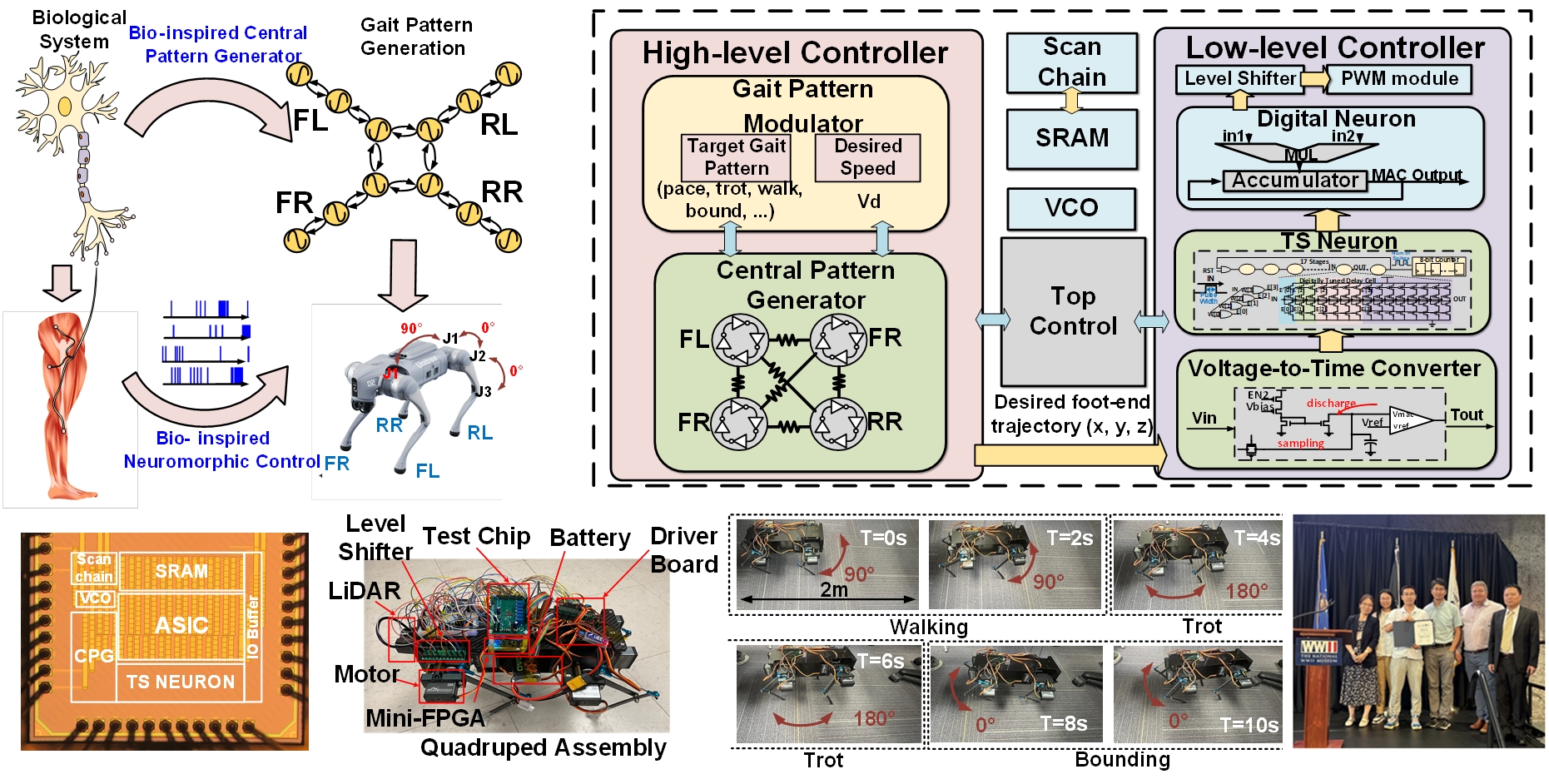
Topic 2: Intelligent Neural Processing for Human Machine Interface and Biomedical Device
We are designing AI empowered neural processing devices for biomedical applications with 1,000X saving on power consumption. The applications extend into robotics, virtual reality, intelligient human machine interface, etc. Please find our recent demonstration videos in ISSCC'24 on brain EEG controlled VR scene.
(1) Intelligent AI-powered Neural Interface (ISSCC'26, ISSCC'24, VLSI'23, DAC'22, DAC'20)
Brain Controlled VR Game and Menu Selection Demonstration Video
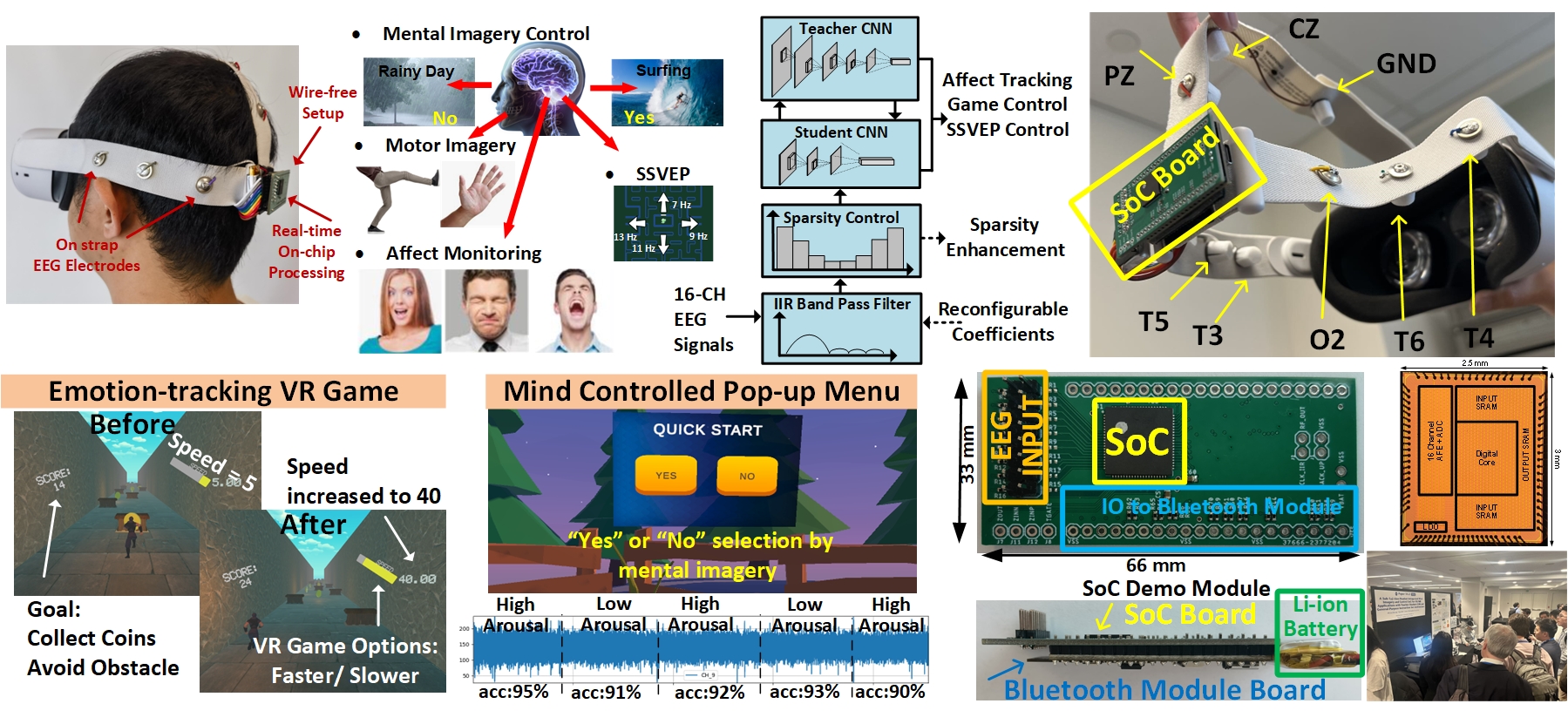
(2) Biomedical Applications (CICC'22, JSSC'21, EMBC'20)
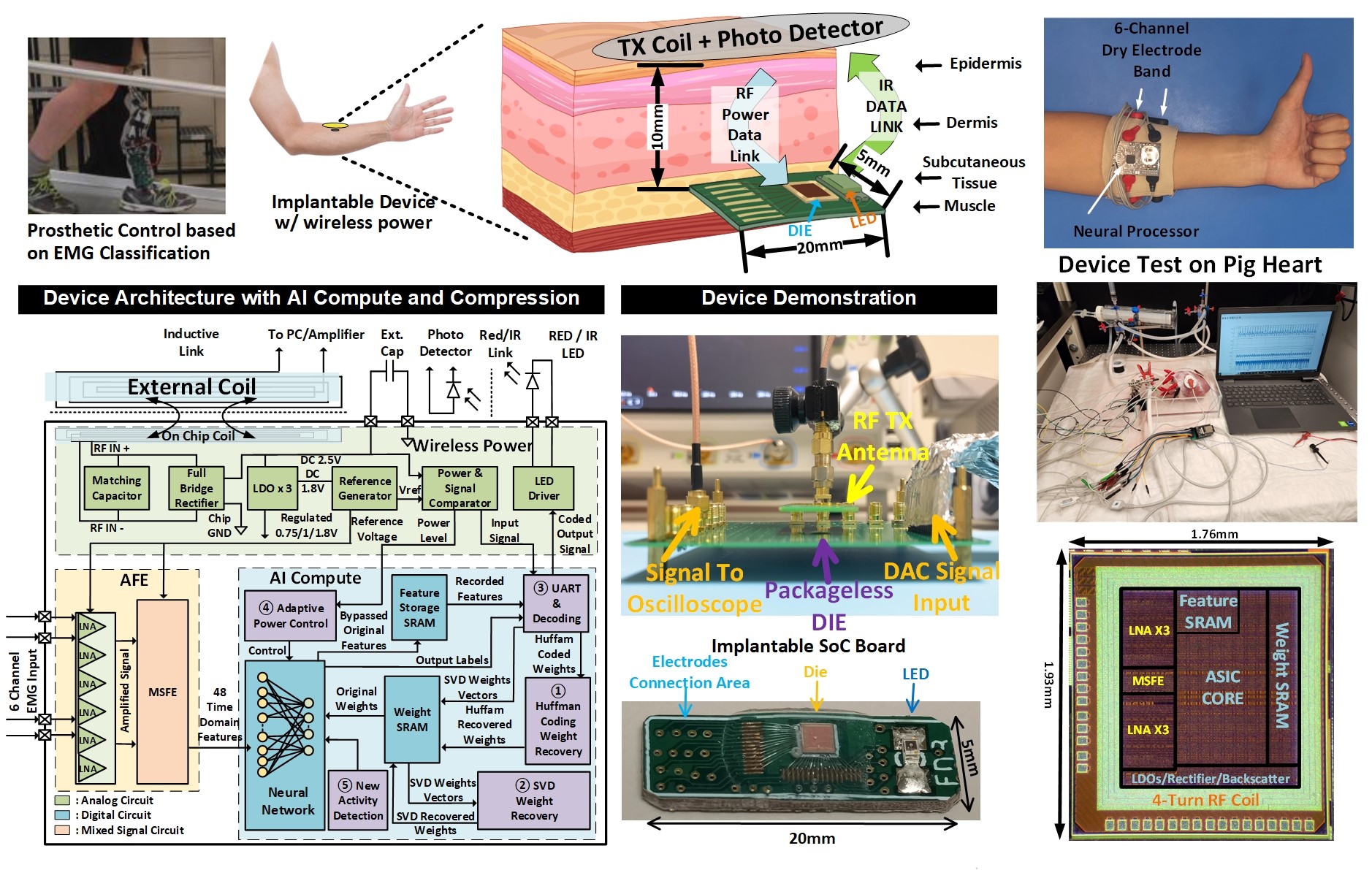
Topic 3: Novel Computing Architecture for Edge AI Devices
We are working on novel edge-AI computing architecture supporting efficient low-latency real-time computing on small devices. This finds a broad range of applications such as robotics, VR/AR, advanced manufacturing, intelligent sensors etc.
(1) Novel Neural-CPU Architecture for Edge Devices (ISSCC'22, VLSI'23)
We are developing novel computing architectures to resolve bottleneck of AI computing at resource limited edge devices. For instance, we demonstrated the first deep neural network based general-purpose processing with significant area, power and performance benefits.
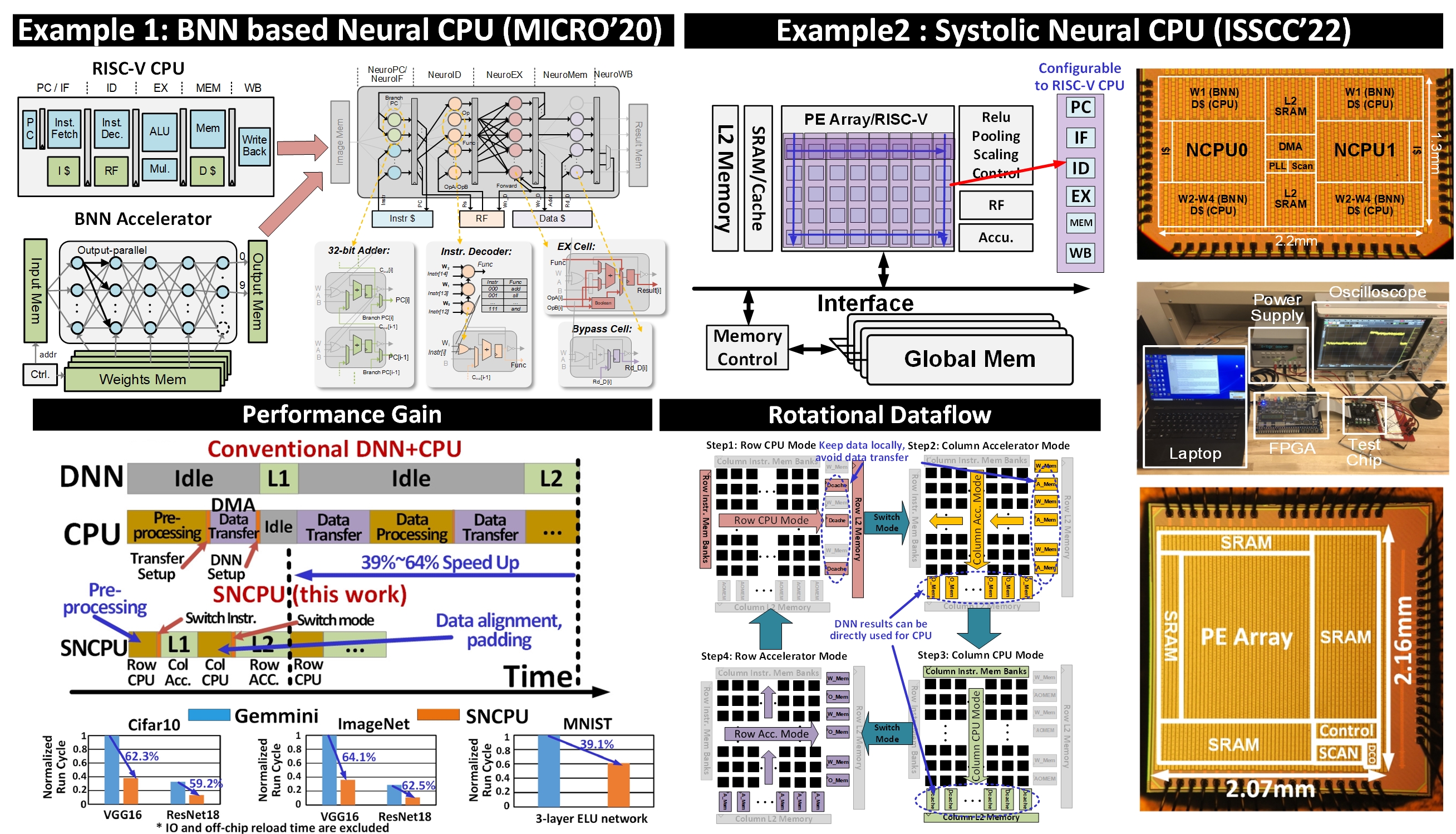
(2) Acceleration for Real-time Scientific Computing (ISSCC'24)
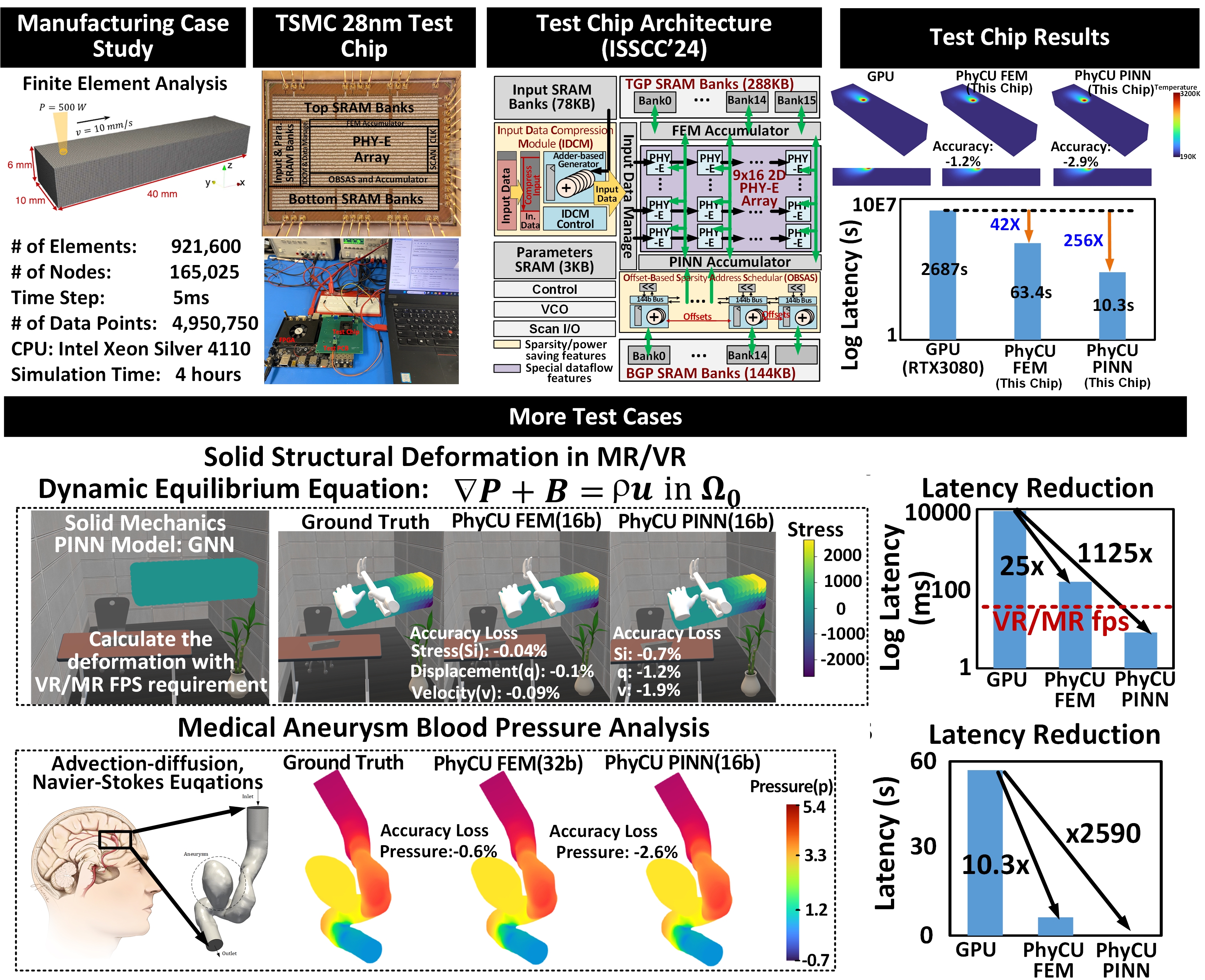
Topic 4: Proactive Power and Clock Management Circuits with Real-time Machine Learning
Supported by SRC, in this project, we are designing "proactive" methods using fast power converters and on-device machine learning techniques to predict the power supply droop for better power regulation of microelectronic devices.
(1) ML Assisted Proactive Power Management (ISSCC'26, VLSI'23, CICC'23)
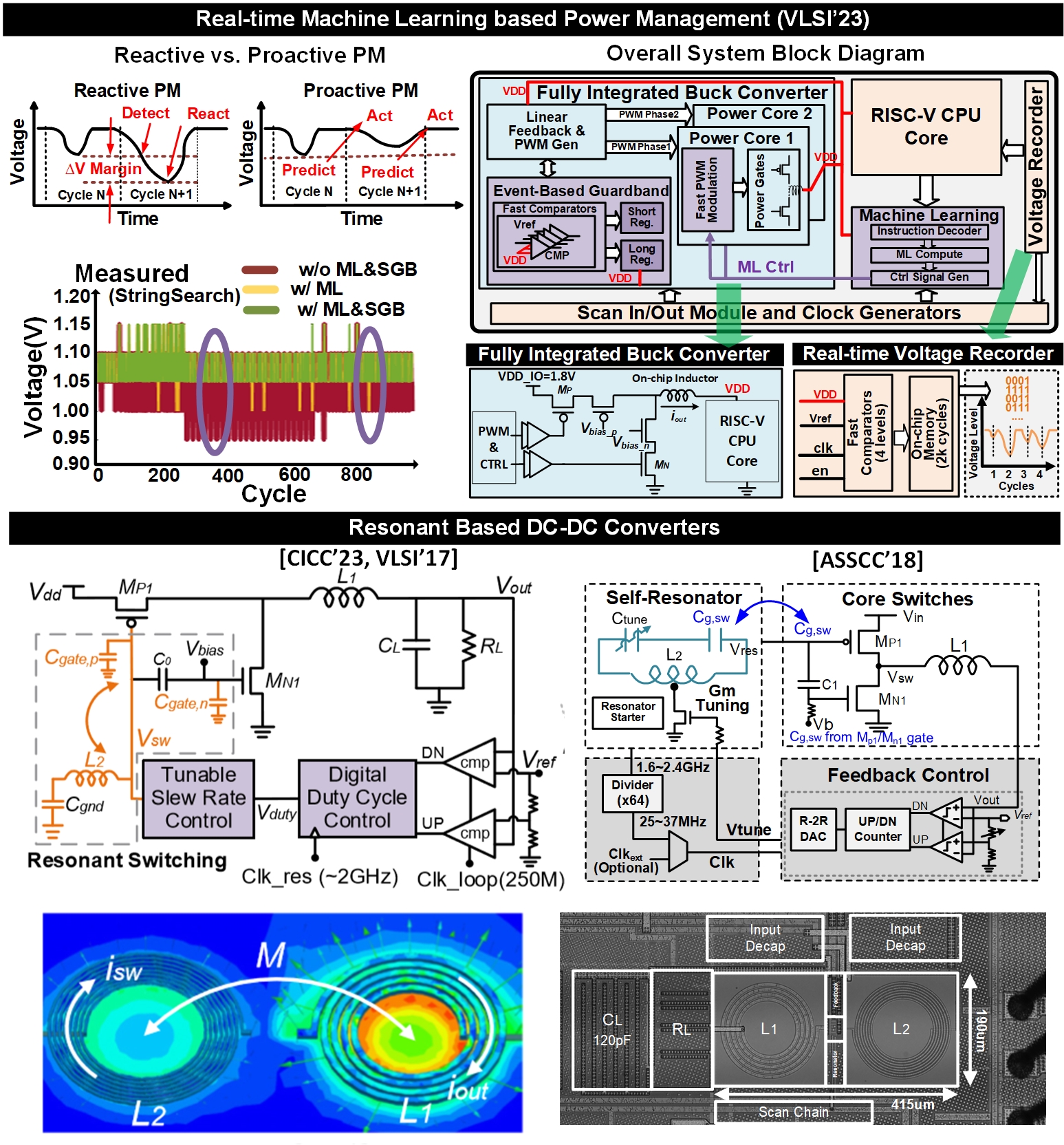
(2) Greybox Computing: Instruction and Computing-Adaptive Hardware Management (ISSCC'19, ISSCC'20, DAC'18)
In this thrust, an integrated clock and power management methods are created where fine-grained instructions guide the advanced clock phase scaling, for energy efficient computing. This is similar as the well-known Razor technique, but we only utilize clock phase scaling instead of a special flip-flop to make the technique easier to use. The techniques have been applied to CPU, GPU, and CNN accelerators.
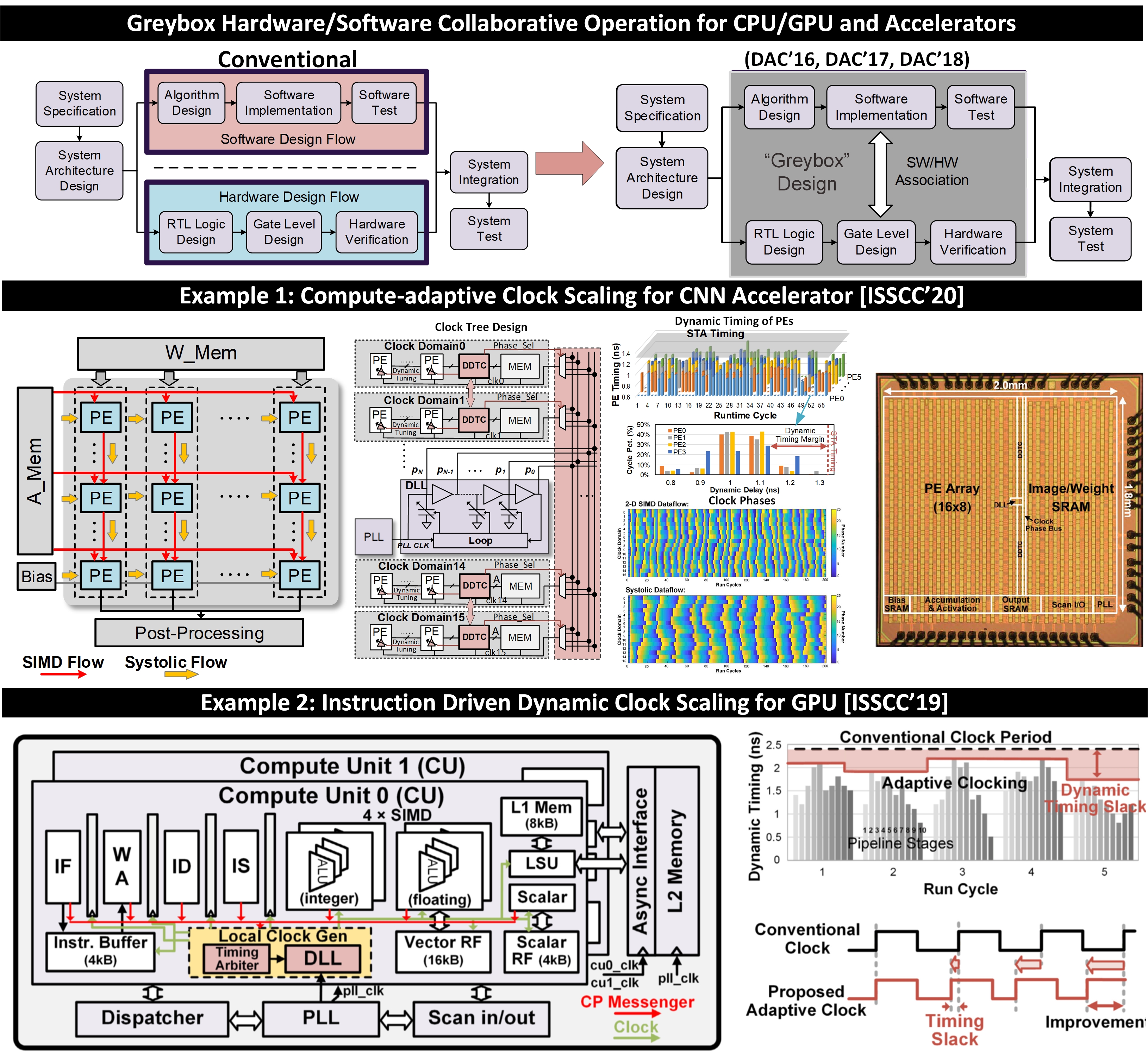
Chip Gallery
